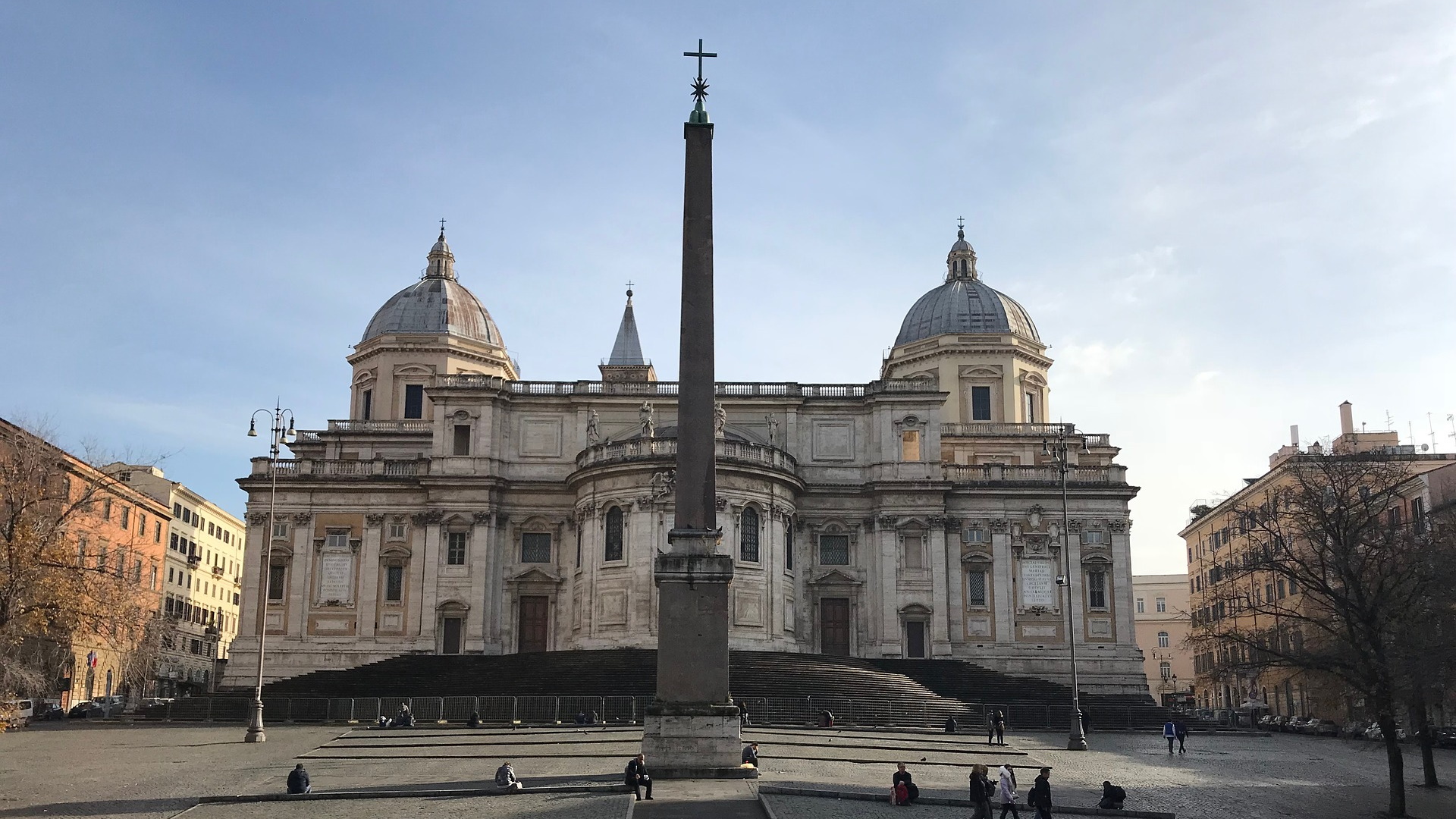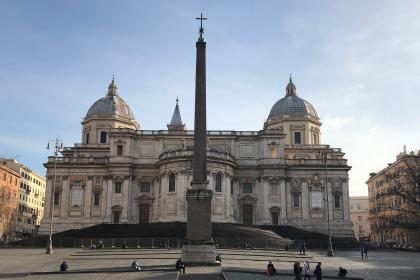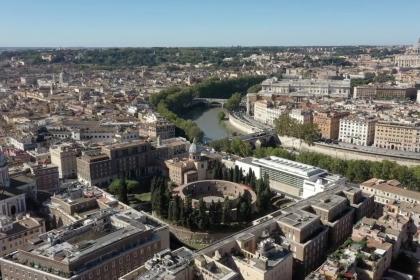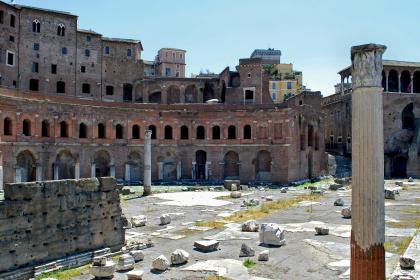
Also called Liberian Obelisk, the Esquiline Obelisk is located in Piazza dell'Esquilino behind the apse of the Basilica of Santa Maria Maggiore, in the Rione Monti.
Carved into the red granite of Aswan is 14.75 meters high and, with the basement, reaches 25.53 meters.
The Esquiline Obelisk is probably of Roman origin as it has no inscriptions that prevent its dating. Perhaps, it is from the time of Domitian and is an imitation of the Egyptian obelisks, or maybe it dates back to the 4th century B.C. and was just transported to Rome from Egypt.
Formerly, it was placed, together with its twin Quirinal Obelisk, in the Rione Campo Marzio at the entrance to the Mausoleum of Augustus, the largest circular tomb ever known.
Fallen in ruins and buried during the early Middle Ages, its remains, divided into four sections, were found in the 16th century near the Church of San Rocco in Via di Ripetta.
During his pontificate, Pope Sixtus V decided to erect an obelisk in front of every basilica in Rome to decree the victory of Christianity over paganism. So, on a project by Domenico Fontana, together with his brother Marsilio, and his nephew Carlo Maderno, it was placed where we can admire it today, in 1587.
On its top was placed the coat of arms of Pope Sixtus V's family, the three mountains with the star surmounted by a bronze cross, the work of the sculptor Giacomo Tranquilli.
Each side of the Obelisk base has Latin inscriptions telling its consecration to Christ and origin.
The Basilica of Santa Maria Maggiore

 Condividi
Condividi
The Mausoleum of Augustus

 Condividi
Condividi
Rione I - Monti

Information
 Condividi
Condividi
Location
To find out about all accessibility services, visit the Rome accessible section.












































